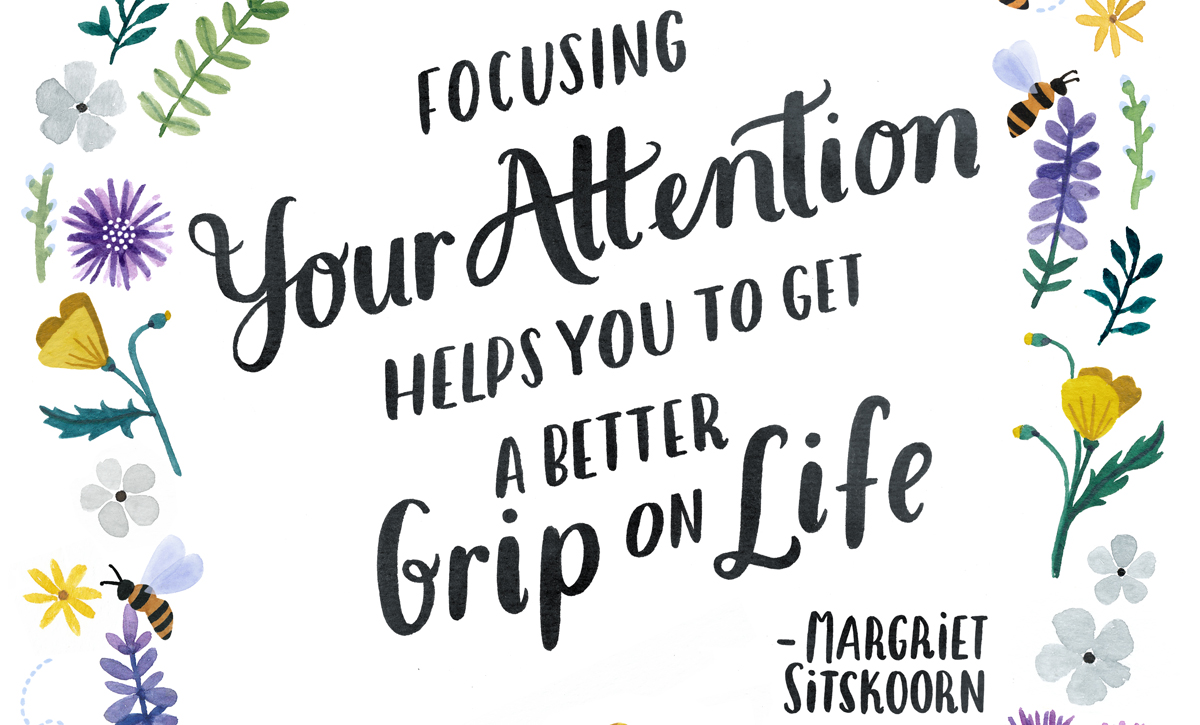We can teach ourselves to be less distracted by the things that don’t really matter. Professor of Neuropsychology Margriet Sitskoorn talks about how.
You have written that attention is one of the most important skills we need in this time…
“It is often said that what you give attention to grows in importance. And that is so true. Attention is very important for what you perceive and therefore what you feel, think and develop. That’s because it directs the plasticity of your brain: attention gives, as it were, a signal to your brain that says, ‘This is important, I need to do something with this’. As a result, the brain commits itself to doing something with what you have focused on.
Being able to direct your attention where you want it is a tremendously important skill in this age, where you encounter hundreds of thousands of things every day that you could theoretically respond to. If you can consciously focus your attention on something and then hold, divide or let go of that attention at will, you will be distracted by the stimuli from your environment or from yourself less often. You will also have less trouble completing tasks, and won’t spend much time on things or thoughts that aren’t useful anymore.”
You have become a great supporter of attention training.
“I must admit, I was a non-believer at first. But scientific research has shown how beneficial attention training, such as meditation or mindfulness, is for the brain. It’s logical: If you can’t regulate your own attention you can’t regulate your life. You go into town without needing anything, and suddenly you’re hungry for chicken because of that nice smell wafting out of the restaurant kitchen, and you want new shoes because you see them in the shop window. You end up wanting all kinds of things. By training your attention, you are empowering yourself to not react to everything — not to each and every shiny thing in the outside world, and sometimes also not to your own thoughts and emotions. So that you can determine for yourself what is important and what isn’t.”
And everyone can become better at this?
“My specialty is neuroplasticity, the adaptability of the brain. Everyone can indeed become better at this, because the beauty of the brain is that it can develop and change. The more you develop these executive skills, as they’re called, the easier it becomes to be successful in the broader sense of the word. You’ll be healthier and happier, contribute more to the lives of others, be more content with your salary and you will become better at maintaining your family and other relationships.
Because if you just keep on going in a life that you don’t have personal control over, it will have major consequences: burnout, divorce or alcoholism, for example. Plus, chronic stress — constantly feeling that you must handle things but can’t and can’t actually escape them either — literally breaks the brain. So it is vital to take charge of your life again.”
- Read the full interview with Margriet Sitskoorn in Issue 27.
Interview Sjoukje van de Kolk Illustration Valesca van Waveren














